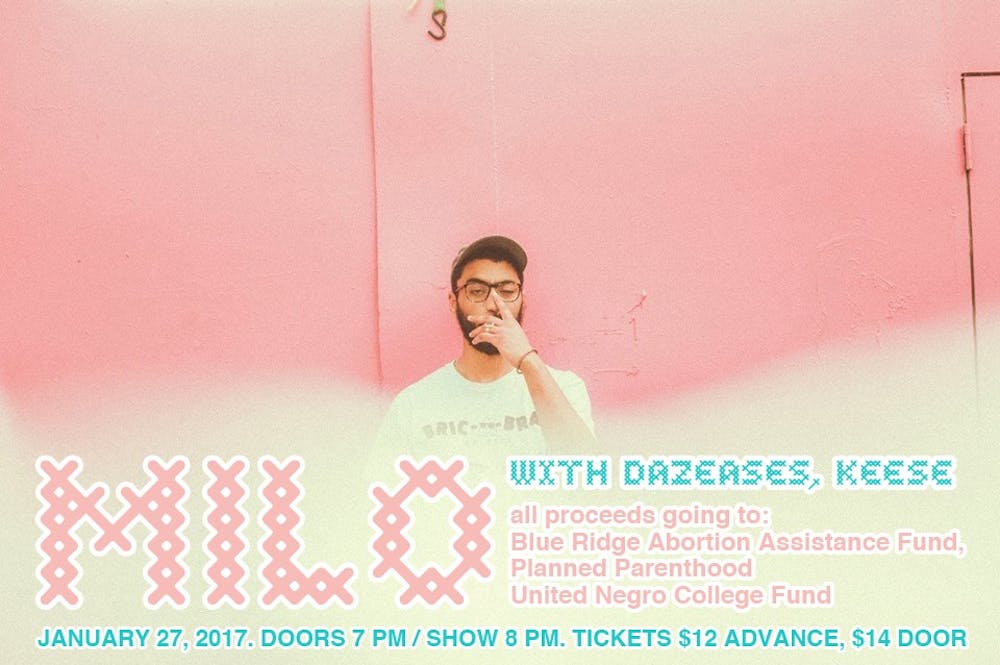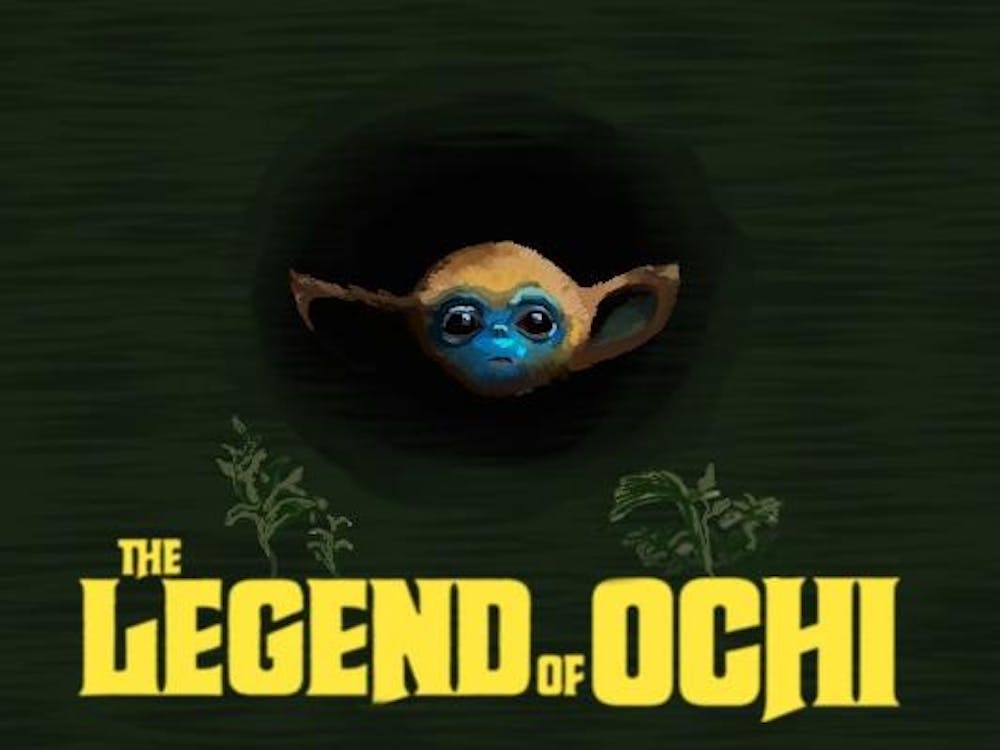The U.Va. Chapel was packed with eager students last Friday. Before the rapper Milo took the stage, fellow rapper Keese and singer-songwriter Dazeases kicked off the performance. As overqualified openers, both performers demonstrated their own distinctive art to set up the main show.
Keese, a 26-year-old Charlottesville native, brought his brand of wordy storytelling over more conventional beats and flows, while Dazeases delivered an infectious — and at times jarring — musical experience. Both artists had decent fan bases present, but it was clear most of the contingent was there to see Milo.
The entire “rap show”, as Milo called it once he finally took the stage, kept the traditional concert ritual at arm’s length.
“Here there are no rules, and as a black man in America, there aren’t many times where I can be free,” Milo said about his shows.
So Milo did just that — he threw out the rules. He addressed the crowd with rhetorical questions that segued into songs. He allowed the instrumentals to run while dancing through them without rapping a single word. He recited bar for bar an old E-40 verse before asking the mostly Millennial crowd if they remembered which song it came from. And he even mimicked the cadence of Chubb Rock and rapped about Method Man as if he were a father figure.
Through a rambling yet charming monologue, Milo professed his love for rap as art form — or what he refers to as “the philosophical arm of black art [and] black culture.” He is steeped in this culture, and clearly, he is in the process of carving his place in it. He claims to be “professional rapper” trained by “the best rappers in the world” — such as Busdriver, Open Mike Eagle, Nocando and Myka 9.
“I do this sh—t mostly for me, but thanks for coming out,” Milo said at one point early in the show, simultaneously lauding and undercutting his fans’ participation.
Milo consistently plays with the distinction between artist and audience like this. Perhaps he does this to remove himself from the absurdity of performing, but he certainly wants to maintain honesty, too.
His devoted fans don’t see his professed detachment as such. Rather, they view it as a display of the urgency for which he raps. His set’s first two songs were new “workshopped” pieces, and they were phenomenal — his most incisive rapping by far. In these songs, he rails about therapy through “neutered truths” and calls life “a chore list.”
To the devoted Milo follower it comes as no surprise his set only contained songs dating back to his 2015 album “so the flies don’t come.” Milo is years removed from having dropped out of college to pursue rap in Los Angeles before leaving to start his own Milwaukee-based record label Ruby Yacht in 2015.
Milo’s experiences as “a strong black man two-stepping through banality” helped create an artist hardened by alienation and loss while unbound by philosophical thoughts.
At one point, he said tellingly, “I could keep rapping, or I could not. Both are my favorite. If you ask me, it’s all my favorite.” Milo’s performances are processes — unfoldings of musicality and philosophy.







